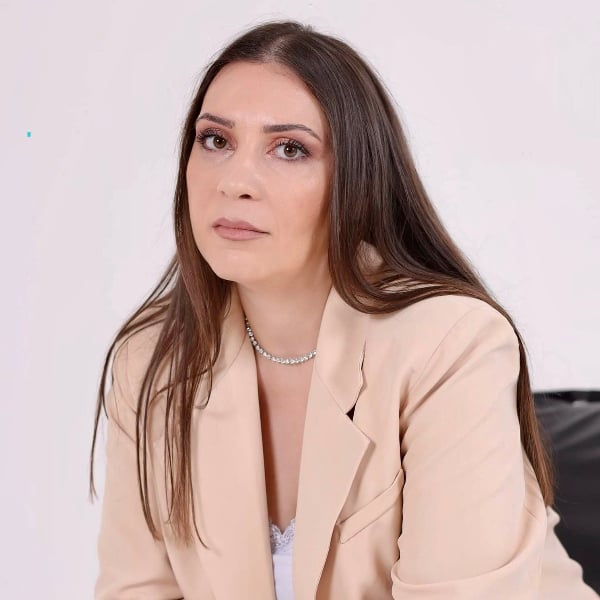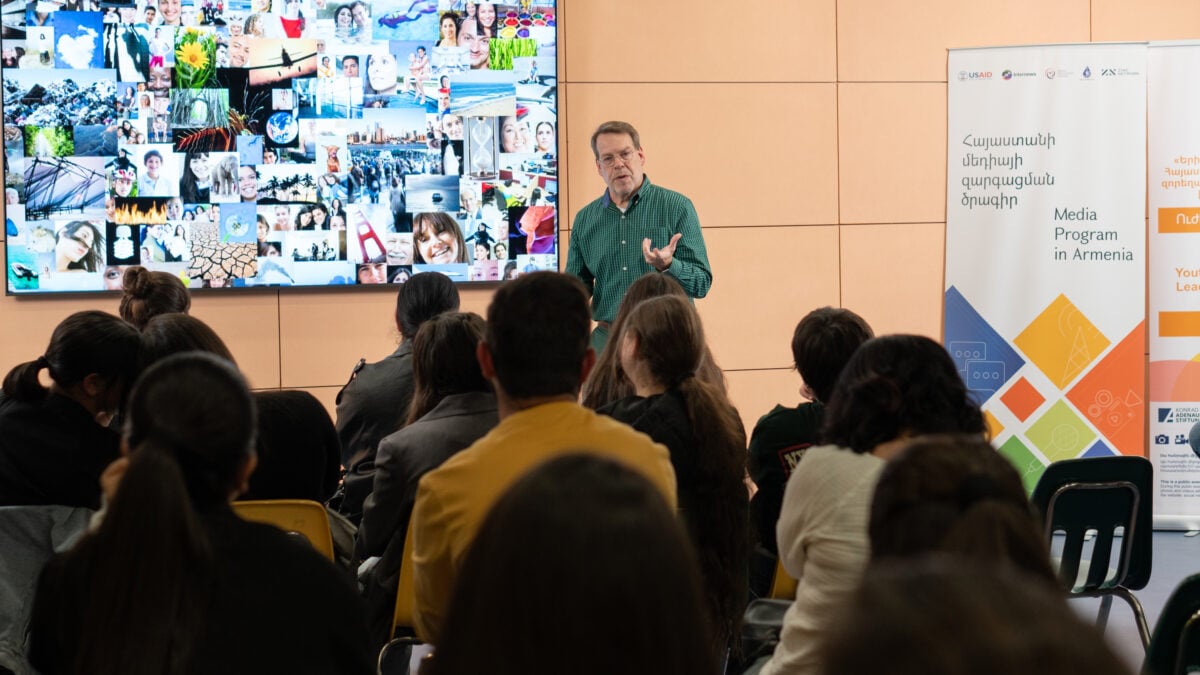Several Armenian media outlets are discussing integrating artificial intelligence tools into their work processes, with some already implementing them.
This was the topic of the interactive discussion titled “5×5+1: Media Literacy or AI Opportunities and Media,” held at the American University of Armenia during Media Literacy Week.
Hayk Hovhannisyan, a journalist from “Civilnet,” noted that even the Armenian traditional media sector has integrated AI into the process. He observed that multimedia tools are mainly used to create visual content.
“AI has changed certain rules of the game. The future development of AI will depend on our choices, but there’s no reason to doubt that AI offers endless opportunities. These opportunities are already being utilized,” stated Hovhannisyan.
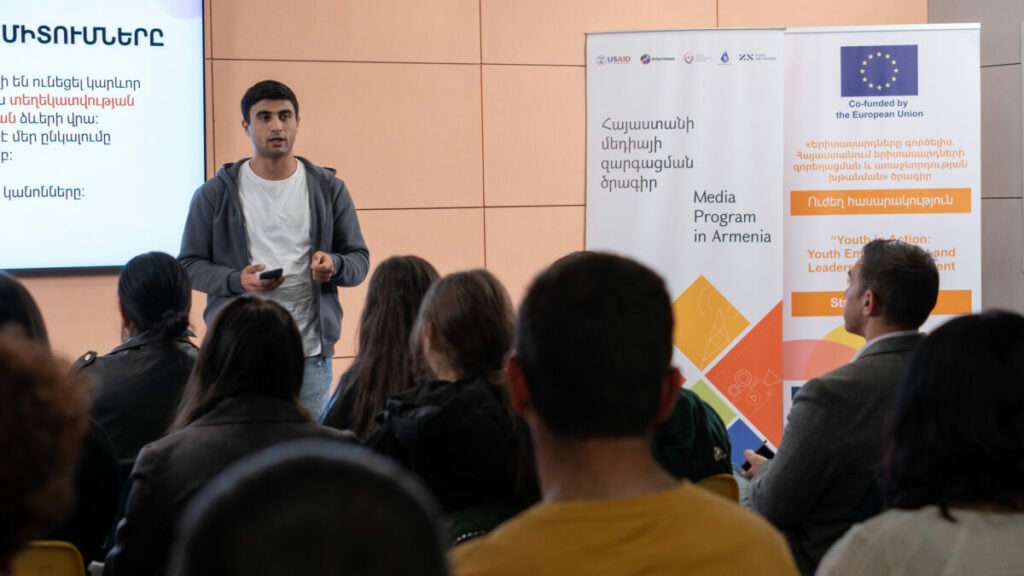
Hayk Hovhannisyan
The journalist highlighted the importance of several tools for specialists: voice transcription, voice synthesis, image processing, and translation. Hovhannisyan mentioned that these tools help him identify fake news as a fact-checking journalist.
“I would like to share some advice about working with AI tools that was once given to me. AI tools are designed to facilitate tasks, speed up processes, and enhance the quality of work, but they do not replace us. If you think of AI as an assistant or a secretary, you will achieve excellent results,” said the journalist.
Media expert Samvel Martirosyan highlighted both the advantages and disadvantages of AI technology. He acknowledged its positive potential but also pointed out that it can be misused by criminals.
Martirosyan emphasized that AI has transformed the landscape of information warfare, resulting in many users who seek to influence various events and public opinions.
The phenomenon that was once referred to as information wars, then hybrid warfare, and is now commonly known as influence operations. A market has emerged for these activities, and there are teams that conduct propaganda and psychological influence operations in the information space. Various states have established similar teams to carry out these actions both domestically and internationally. We have documented evidence of such teams being formed. For instance, in 2013, we learned about the formation of such teams in Russia and Turkey. It’s worth noting that Azerbaijan has been in this game long before.
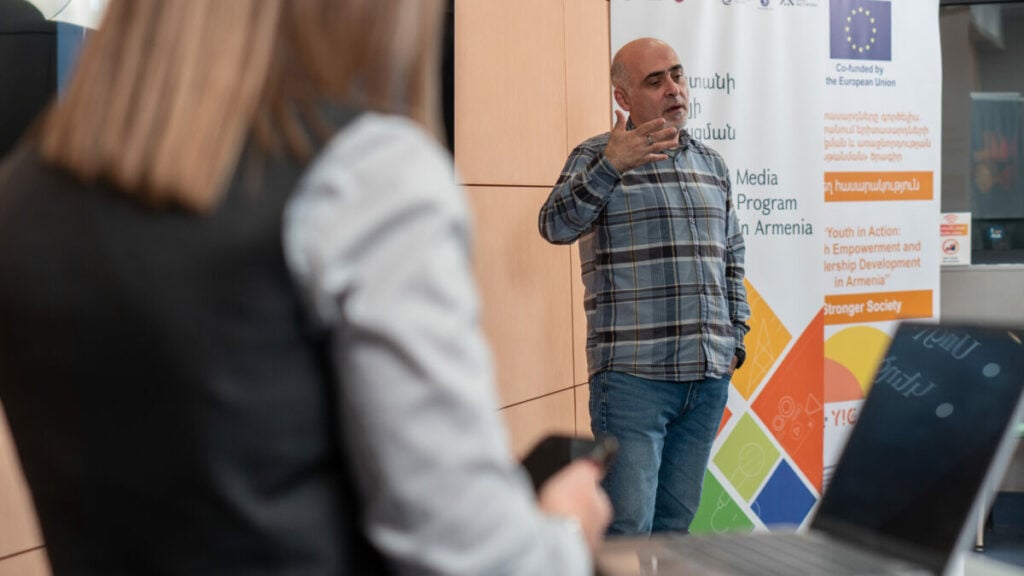
Samvel Martirosyan
Artificial intelligence is providing new momentum to this phenomenon. Turkey created a team of 10,000 people to work against RA. Now, fake user accounts can be generated through AI, which generates posts. Additionally, you can have multiple posts ready in just a few minutes. In the past, it was necessary to have specialists on the team who were fluent in the required languages and familiar with the relevant slang. However, now AI can communicate effectively in all languages.
“Hetk” journalist Nare Petrosyan said that after AI appeared, journalists faced a dilemma: whether to work with AI or fall behind.
At the same time, she said that AI tools are unfortunately not used positively in the media, which is probably why people do not trust AI.
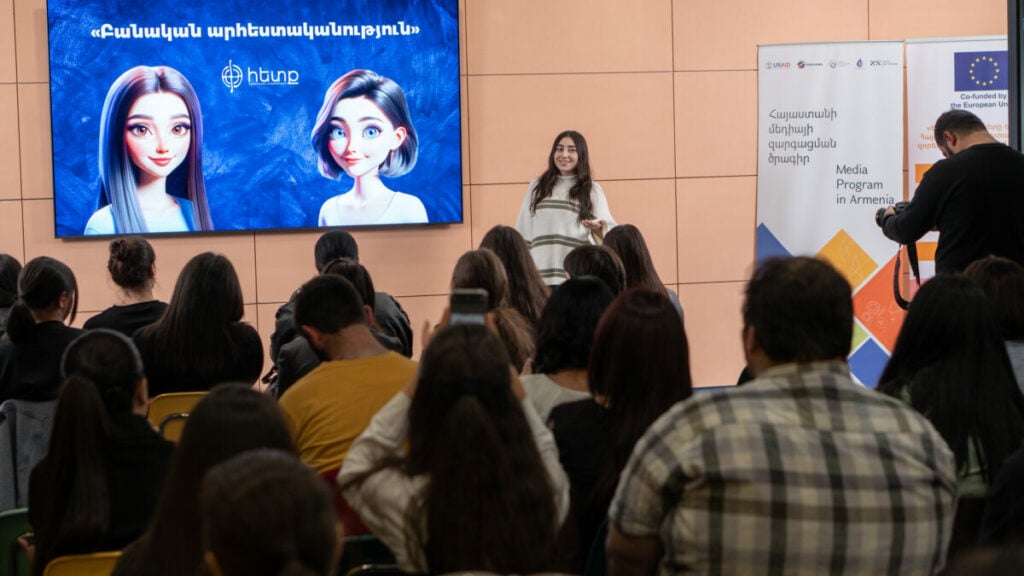
Nare Petrosyan
“Artificial intelligence will not replace humans, but rather those who utilize it. At Hetk, we have a team of four dedicated to integrating AI tools, and AI assists us with various tasks. Given that media outlets often have limited financial resources, it is better for us to subscribe to tools with a monthly fee,” the journalist stated, emphasizing that they inform readers when AI has contributed to generating specific content.
Konstantin Amirakyan from Internews Armenia singled out the ability to perform analysis and make more accurate decisions among the greatest opportunities offered by AI. He noted that this is an important skill for media marketing.
“AI analyzes a huge amount of cases and allows us to make more accurate decisions, not by eye measurement,” Amirakyan noted.
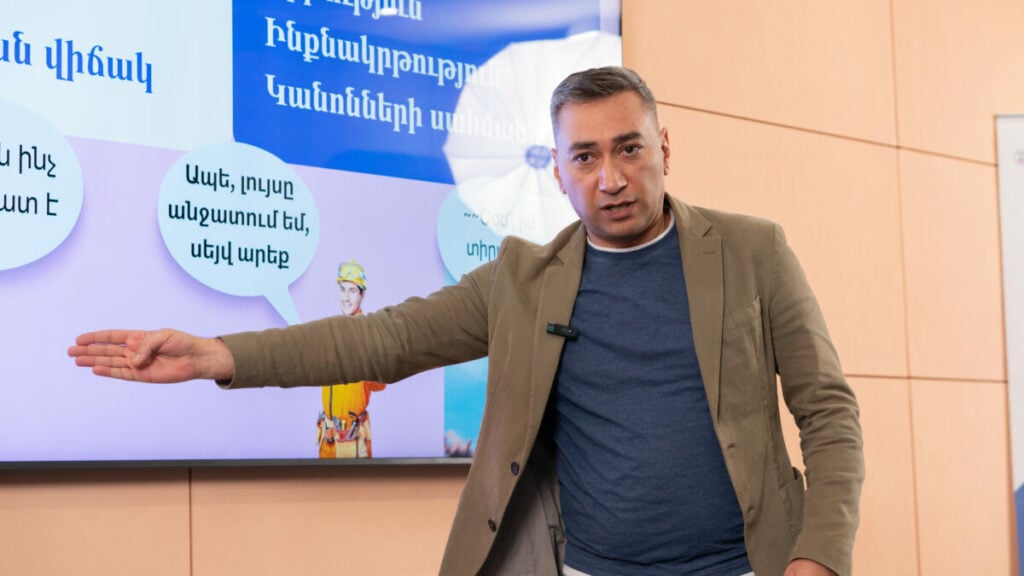
Konstantin Amirakyan
He noted that many companies still lack a clear understanding of how to leverage AI opportunities. “They recognize that AI is trendy and feel they should be using it, but they are unsure how to utilize it effectively. Organizations are often not prepared to implement AI. Additionally, no courses teach how to use these tools,” he stated. He recommended starting by experimenting with free AI tools.
International education expert and media literacy trainer Arminas Varanauskas gave the example of two fictional young people.
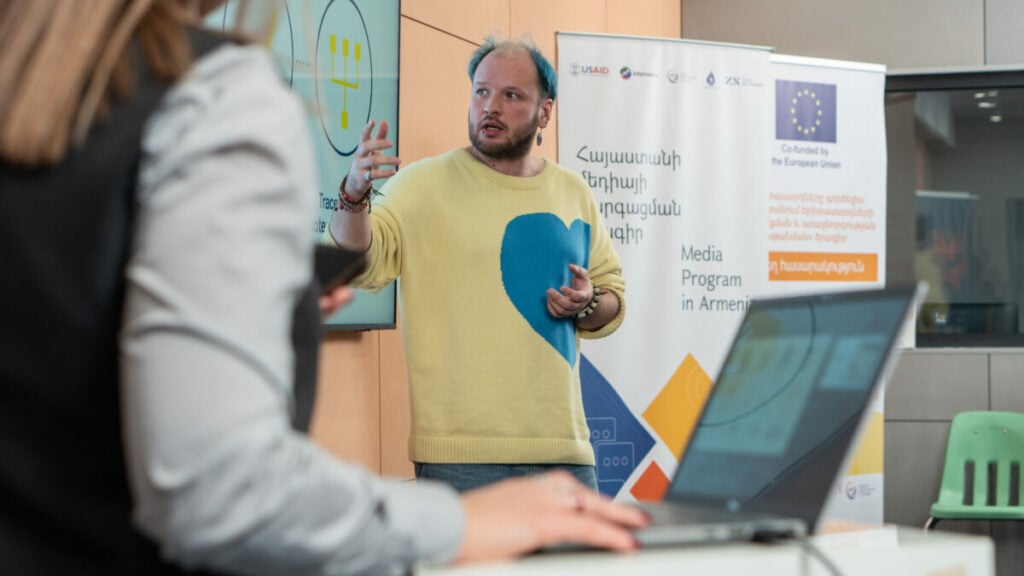
Arminas Varanauskas
In his example, one of the students who studies in a public school might not have access to teachers who can teach him the intricacies of applying AI. In contrast, a student in a private school may have an AI trainer. However, public school students are capable of independent thinking and decision-making, while private school students often rely on AI for answers and cannot decide independently. He emphasizes the importance of balance to avoid ending up in such a situation. Instead of treating AI as a decision-making tool, it should be viewed as an assistant.
